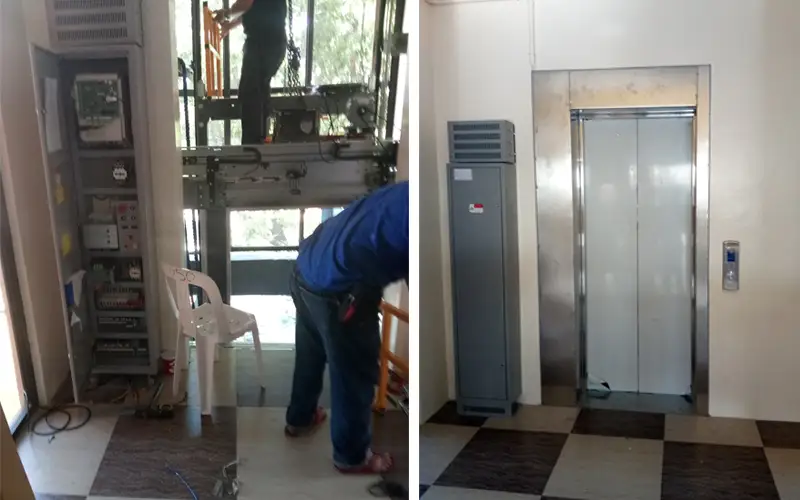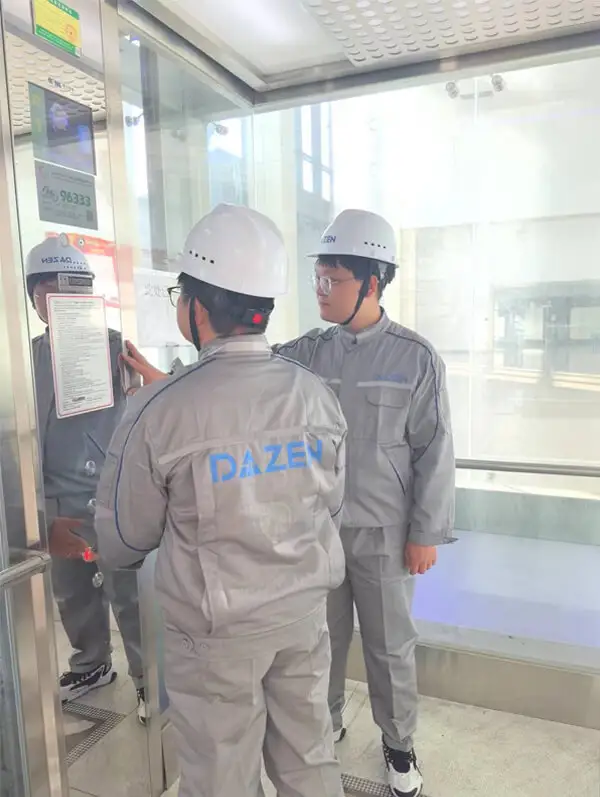Why is Understanding the Elevator Installation Process Crucial?
Familiarizing with the elevator installation process is not just for engineers or construction nerds; it’s essential for anyone involved in a building project. Prior to installing, read below why this process is important to understand:
1. Safety Compliance: Installers follow strict safety rules when installing elevators. Knowing how they are installed helps make sure the wiring, weight limits, and emergency systems are set up correctly.
2. Cost Management: It helps you budget accurately and avoid unexpected costs. It lets you use resources like labor and materials more efficiently, which reduces waste and delays.
3. Quality Assurance: Getting everything right is crucial. By carefully following the installation steps, you can avoid future maintenance problems and help the elevator last longer.
4. Regulatory Compliance: Installing an elevator helps make sure you follow all legal rules and building codes, which can prevent fines or legal problems. It becomes easier to pass legal inspections because all the important standards and requirements are clearly covered.

Complete Elevator Installation Process
Step 1: Planning and Design
The first step is planning and design. Just like you don’t start constructing a building or a house without a plan, the same goes for an elevator installation process. You need robust planning and design before you do it.
First of all, choose an elevator that suits your needs. Different types are mentioned below:
Hydraulic Elevators: They are for heavy lifting because of hydraulic pistons to move the cab up and down. It is perfect for homes with multiple floors.
Traction Elevators: They use ropes and counterweights. They are ideal for taller buildings.
Pneumatic Elevators: These are the space savers. They use air pressure to move the cab. It is perfect for homes with limited space.
Pro Tips:
- Your chosen elevator should comply with local building codes and regulations.
- During purchasing, check out the weight capacity and size of the elevator to accommodate future needs.
Step 2: Permits and Approvals
Now, before you go grabbing your tools to install an elevator, you will need to obtain the necessary permissions and authorization from local authorities.
You need permits & approval based on the location of the building. Why? This is because your installation should meet all local codes and safety standards.
Rules for building and permits differ by country. A few countries and their respective institutions are mentioned below:
1. Safety rules should be followed during installation in the United States according to the American Society of Mechanical Engineers (ASME) and the Occupational Safety and Health Administration (OSHA).
2. Building rules and British Standards Institution (BSI) requirements are obligatory in the United Kingdom. With regard to safety rules, the Health and Safety Executive (HSE) is an essential organization.
3. Living in Germany and being a German citizen will mean following certain standards and policies from Deutsches Institut für Normung DIN and the European Committee for Standardizing CEN to guarantee proper and safe elevator installation.
4. Those living in China should abide by China Elevator Association (CEA) recommendations as well as China National Standardizing Administration (SAC) rules and Ministry of Housing and Urban-Rural Development (MOHURD) standards.
Pro Tips:
- You should work with a licensed contractor because he will be familiar with the permitting process.
- Complete all the paperwork accurately to avoid delays.
Step 3: Site Preparation
Next up is site preparation. This is where you make your elevator-ready. It’s like prepping the stage before the main act.
Key Steps involve preparing the site:
- Shaft Construction
What is a shaft construction? Let me explain! A shaft is a vertical space through which the elevator can travel. For this process, cutting openings in floors and walls are required to create the path. - Reinforcements
Some elevators are heavyweight. Your home & commercial building floors must be stronger before you install an elevator. Yeah, safety comes first! It should be your top priority.
- Electrical Setup
Electrical setup is a paramount step because your elevator needs power. You will need to install the necessary wiring and circuits. Adding a special circuit breaker is crucial for your elevator.
Precautions:
Secondly, please hire a skilled and licensed electrician for secure work.
Please keep in mind that any building or renovation work should be done carefully. It can damage or weaken the house.
Step 4: Elevator Installation
Here you are, the fun part—the actual installation. This is where all your planning comes to life.
Component assembly is the first thing you will do. As an installer, you will start by assembling the elevator’s components—the motor, the control system, and the cab itself.
Second step is cab installation. You need to place the cab carefully in the shaft and connect it to the hoisting mechanism. Remember: Precision is key here.
Finally, you will set up the control system. The control system installation includes buttons, sensors, and all the emergency systems.
Precautions:
Check all fastening and connections to guarantee the elevator runs safely and without faults.
If you want correct assembly and installation, closely follow manufacturer instructions.
Step 5: Testing and Inspection
Installation complete? If yes, do rigorous testing and inspection to ensure it meets all safety standards. For example, you can test the elevator’s functionality, speed, and emergency systems.
Tests the following aspects of your installed elevator:
Load Testing: Check out the load capacity of your elevator to see if it can bear the weight or not.
Emergency Systems: This includes checking brakes, alarms, and backup power. These are crucial for your safety.
Operational Testing: This involves examining the movement of your elevator to make sure it’s smooth and reliable. Take it up, take it down, and repeat the process.
Step 6: Final Inspection and Certification
Once the testing phase is complete, there is one more hurdle—a final inspection. For the final inspection, you need a qualified inspector. He or she will certify that the elevator meets all safety and building codes. This step is crucial to operate the elevator legally.
Pro Tips:
If the inspector highlights any issues, promptly fixed as soon as possible. It is because the sooner you address them, the sooner you can start using your elevator.
Prior to consulting, make sure the inspector is legit and experienced in elevator installations.
Step 7: Maintenance and After-Sales Support
Congratulations! You’re almost there! Your elevator is now installed, tested, and certified. But the journey doesn’t end here.
- Perform Regular Inspections. Just like your car needs proper maintenance, similarly your elevator needs regular check-ups to keep it running smoothly.
- Lubrication is vital for the movement of an elevator. It keeps those moving parts well-oiled. With this, you will not face wear and tear problems.
- Update the software if your elevator has a computerized control system. It is like updating your phone—important for security and performance.
Pro Tip: I recommend you partner with a reliable service provider. Dazen Company offers complete maintenance packages. We will keep your elevator in top shape.

Dazen: Your Trusted Elevator Installation Expert
As one of the best elevator companies in China, Dazen guarantees seamless operation from beginning to end. From planning and building the elevators to installing them and providing assistance thereafter, we manage everything. Dazen is committed to providing you with excellent solutions that exactly match your needs. Contact us today!
